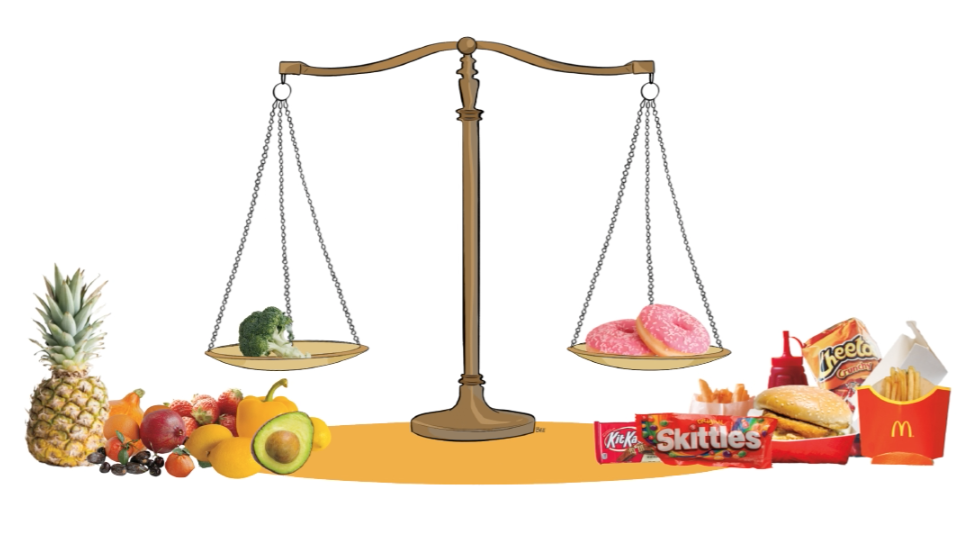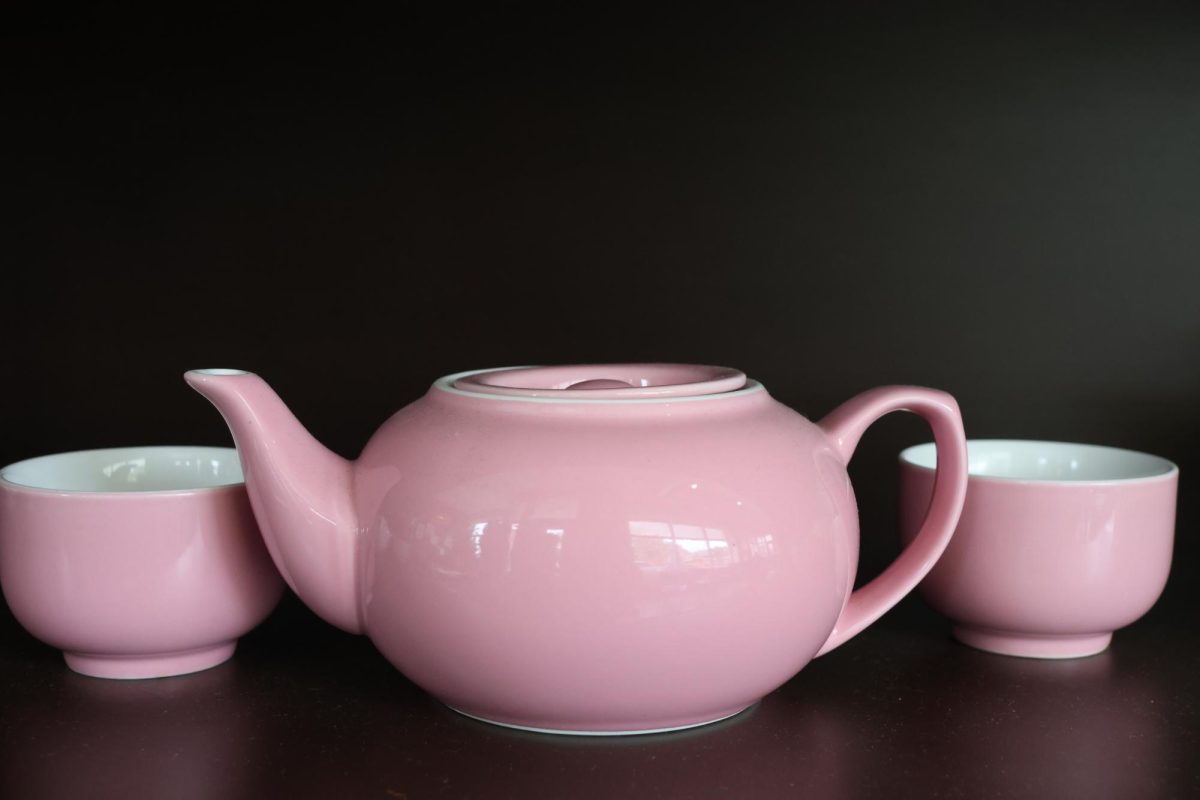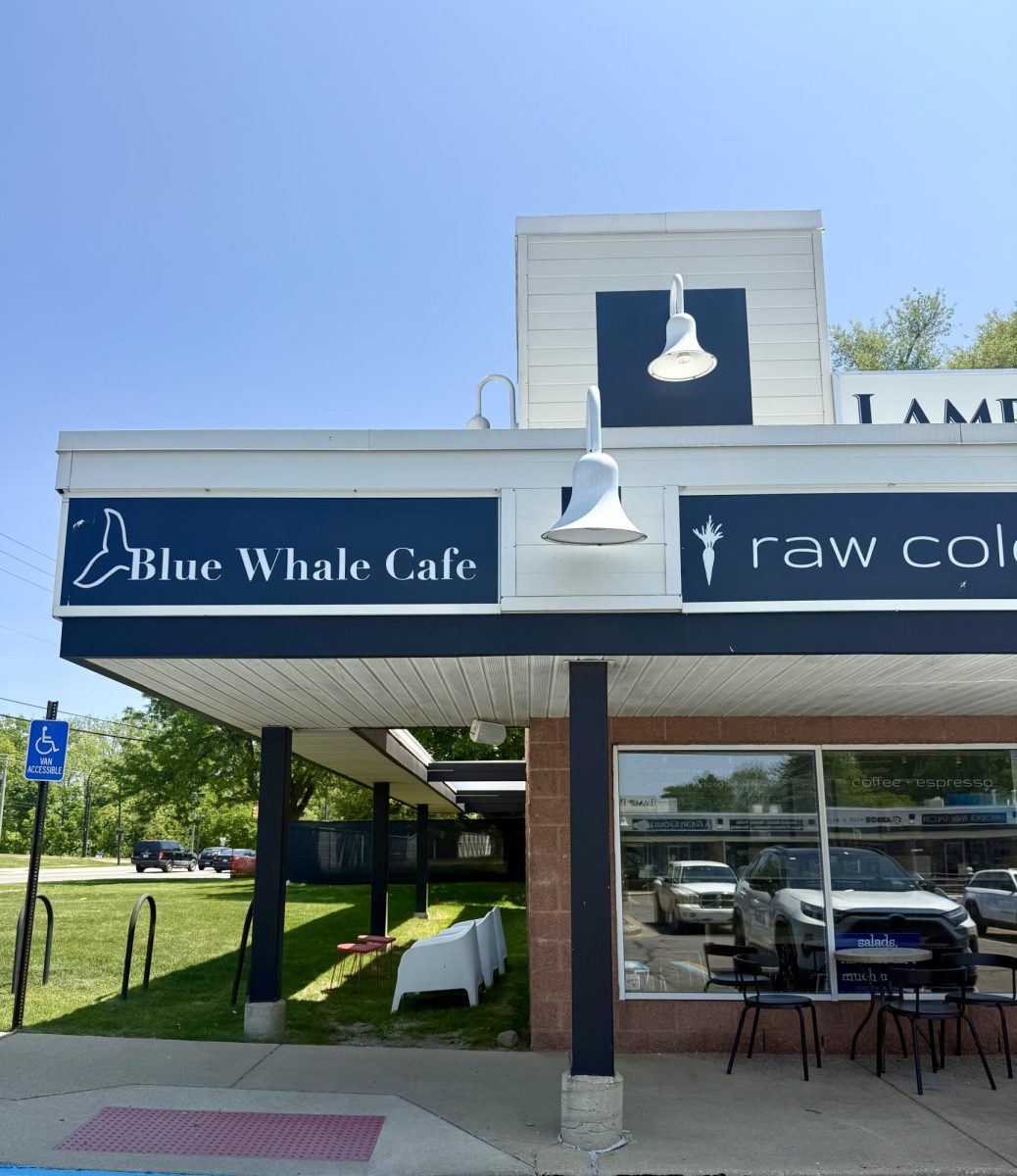Fina Kutcher argues that “bad food” is a very harmful concept, but not in the way you may think. It has an ever-changing definition and it is different from person to person.
Having a healthy relationship with food has always been a huge struggle for me. Looking back over the last century or so, it’s pretty easy to find evidence of how the diet industry has pushed food into narrow categories of “good” and “bad.” I have certainly fallen into this hole, and it isn’t necessarily an easy one to get out of.
The real problem with these strict categories is that it also pushes a narrative that every individual is the same and should all make the same choices to be healthy: this is not the truth. Every individual body is different, and every individual body requires different treatment to be healthy.
The standard that is pushed by certain parts of the media says that we should all be striving for a “perfect body” both on the inside and out, but the reality is that a “perfect body” simply does not exist. One thing that I notice a lot in diet culture is a generalization of how to go on diets. For example, some very popular diets involve entirely eliminating whole food groups, like carbs or sugar. For some people this might improve their health in desired ways, but for others, it could be detrimental.
According to the Lindner Center of HOPE, dieting can lower metabolic rates, cause malnutrition, and create unhealthy eating habits that can cause a lot of harm later in life.
“Complex entities like health and wellness cannot be reduced to the one isolated number of what we weigh or to what body mass index (BMI) is,” stated the Linder Center of HOPE. “Dieting mentality tempts us into ‘If I am thin, I will be happy’ or ‘If I am not thin, I am a failure’ way of thinking but only provides a short term fictitious solution with long term harmful physical and mental consequences.”
A lot of harm can come from assuming a singular standard for all to strive for; it pushes harmful mentalities, unhealthy eating habits and can result in malnutrition. It is extremely crucial that as individuals, we all understand our bodies enough to be able to supply ourselves with the nutrients we require.
By proxy, it is also important to know what kind of foods to avoid to have a healthy lifestyle – what I might consider “bad food.” To know this, it is important to fully understand yourself, and what kinds of food would keep you from being healthy. For example, if you are someone with food allergies, those would be considered “bad” for you.
The answer to this question, “Does bad food exist?” is entirely based on one’s personal definition of what a “bad food” is. To put it simply, a “bad food” is a food that harms your health.
It is impossible to generally define a singular food as good or bad. We all need different things. In short, bad foods do indeed exist, but it is unhealthy to assume that they are the same for everyone.
Piper Cooke Challenges and dissects the conceptualizations that stand in the way of our nourishment and livelihood.
Food does not have morality: it cannot be good or bad, clean or dirty, forbidden or allowed. Foods being organized into “good or bad” categories is a concept that the diet industry has pushed for over a century.
From my experience, food does not have the virtue of decision-making, it cannot exercise ethics and it does not have the capacity to be ludicrous. Carrots and french fries have the same ability to be wrong or malicious – none.
It can be an uphill battle to gain and maintain a healthy relationship with food. Many factors are battling against us as individuals who need food and calories to survive, but naturally seek comfort and enjoyment in the foods we eat and more generally, in almost everything we do.
The concept of “Good vs. Bad” foods only perpetuates harmful eating habits, which further ingrains hostile ideologies into our lifestyles and society. It is unfair to yourself to outlaw foods from your diet based on an outdated concept pushed by harmful platforms. You are missing out on so much by restricting your-self and living in fear of food.
According to the National Institution of Health, “Eating disorders are actually serious and often fatal illnesses that are associated with severe disturbances in people’s eating behaviors and related thoughts and emotions.”
Eating disorders are a crippling experience, regardless of the form they take. They are complex, serious and dark. It is detrimental to your livelihood. You deserve to live a life not bound to food categories, calories, or body image.
Even though limiting yourself around food dampens diet variability, in turn affecting your health and general quality of life, it is only a puzzle piece in the larger picture of being “healthy”. Health is different to various people, but I define it as all aspects of well-being: mental, physical, social, and any other you can think of are all respected and nurtured as a whole. Health is not just the absence of disease or crisis.
It is essential to entertain health in your everyday life and routine, even though this may look different from person to person. To some, it could be honoring a nutrition goal or maybe eating a food your body has recently been craving. It is up to you to determine what a healthy relationship between food and nutrition is. We need to consume foods that fuel and honor our well-being, and the conceptualization of good and bad foods stands in the way of nourishment.
There are many important factors to having a healthy relationship with food. Satisfaction and flexibility are also valuable and deserve a place at the table.
To answer the initial question, “Do good and bad food exist?” — my answer is no. Far too many factors go into health and well-being to let yourself waste a second longer dwelling on outlawing food and jumping from fad to fad. Relations with food are layered and complex; limiting yourself is never worth the pain.
For getting help, please call or text (800) 931-2237 For additional resources, search: https://www.nationaleatingdisorders.org











